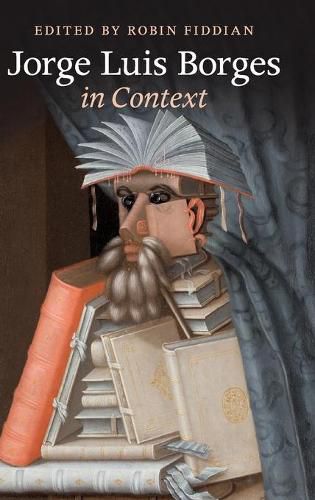Readings Newsletter
Become a Readings Member to make your shopping experience even easier.
Sign in or sign up for free!
You’re not far away from qualifying for FREE standard shipping within Australia
You’ve qualified for FREE standard shipping within Australia
The cart is loading…






Jorge Luis Borges (1899-1986) is Argentina’s most celebrated author. This volume brings together for the first time the numerous contexts in which he lived and worked; from the history of the Borges family and that of modern Argentina, through two world wars, to events including the Cuban Revolution, military dictatorship, and the Falklands War. Borges’ distinctive responses to the Western tradition, Cervantes and Shakespeare, Kafka, and the European avant garde are explored, along with his appraisals of Sarmiento, gauchesque literature and other strands of the Argentine cultural tradition. Borges’ polemical stance on Catholic integralism in early twentieth-century Argentina is accounted for, whilst chapters on Buddhism, Judaism and landmarks of Persian literature illustrate Borges’s engagement with the East. Finally, his legacy is visible in the literatures of the Americas, in European countries such as Italy and Portugal, and in the novels of J. M. Coetzee, representing the Global South.
$9.00 standard shipping within Australia
FREE standard shipping within Australia for orders over $100.00
Express & International shipping calculated at checkout
Jorge Luis Borges (1899-1986) is Argentina’s most celebrated author. This volume brings together for the first time the numerous contexts in which he lived and worked; from the history of the Borges family and that of modern Argentina, through two world wars, to events including the Cuban Revolution, military dictatorship, and the Falklands War. Borges’ distinctive responses to the Western tradition, Cervantes and Shakespeare, Kafka, and the European avant garde are explored, along with his appraisals of Sarmiento, gauchesque literature and other strands of the Argentine cultural tradition. Borges’ polemical stance on Catholic integralism in early twentieth-century Argentina is accounted for, whilst chapters on Buddhism, Judaism and landmarks of Persian literature illustrate Borges’s engagement with the East. Finally, his legacy is visible in the literatures of the Americas, in European countries such as Italy and Portugal, and in the novels of J. M. Coetzee, representing the Global South.